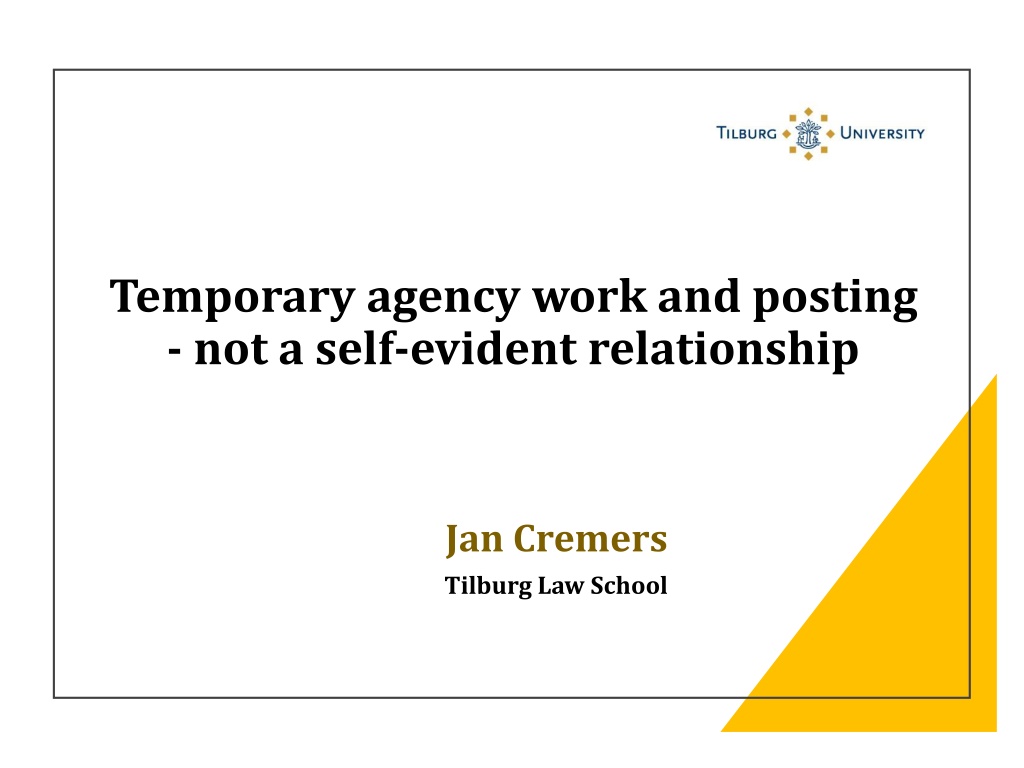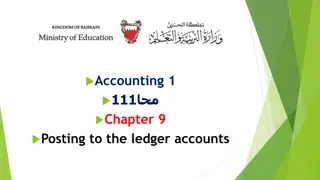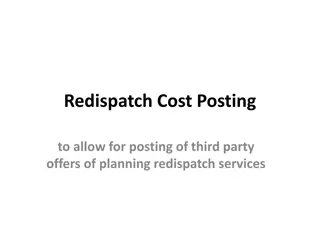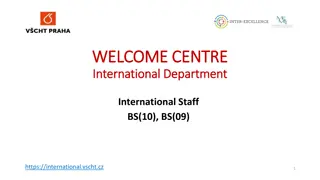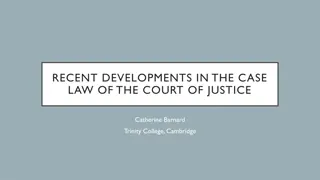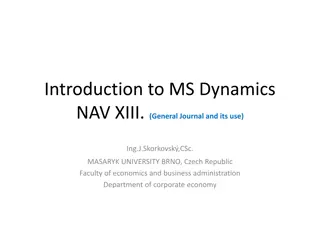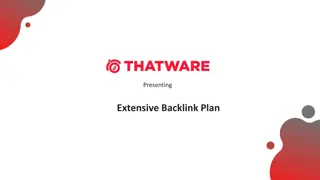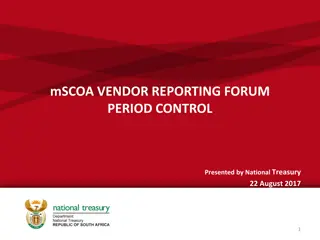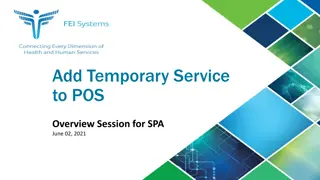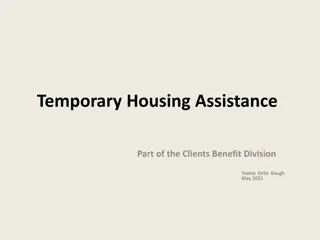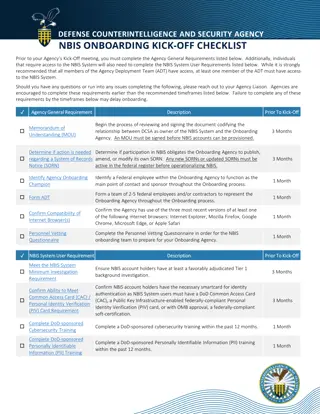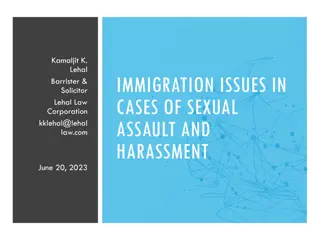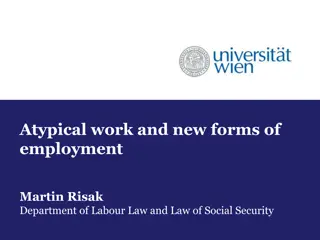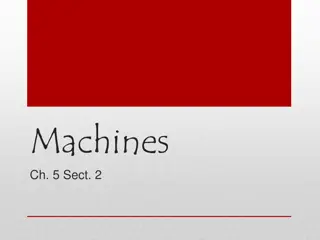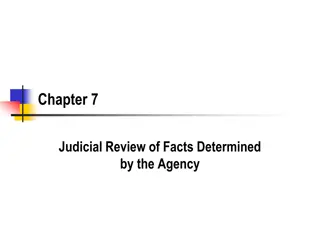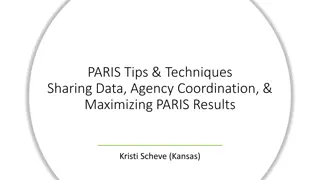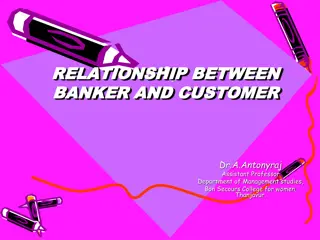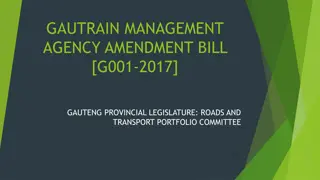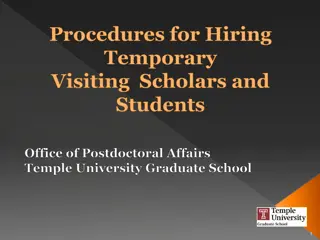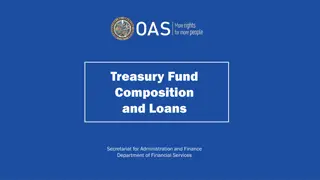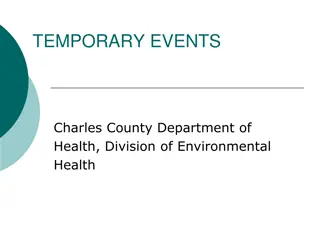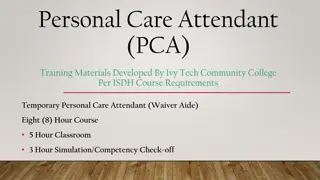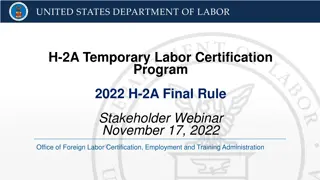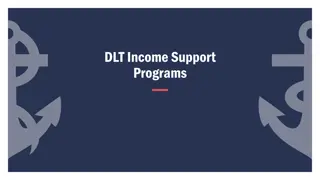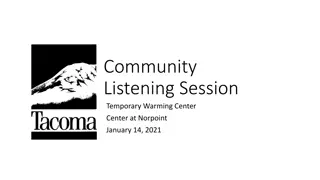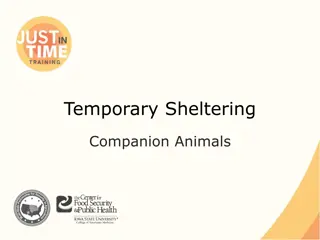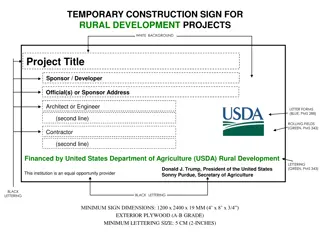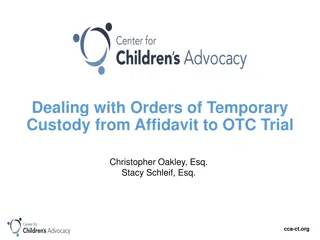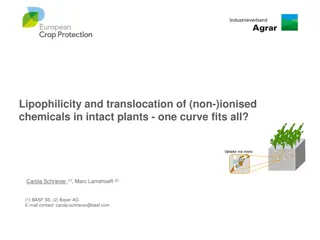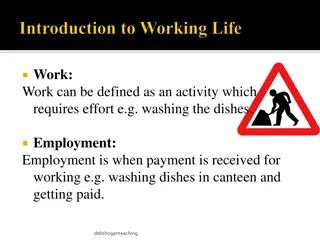Understanding the Relationship Between Temporary Agency Work and Posting
Explore the complex dynamics of temporary agency work and posting, as outlined by Jan Cremers from Tilburg Law School. Delve into historical regulations, the evolution of the Single Market project, and the definition of posting in Directive 96/71/EC. Uncover the reasoning behind the inclusion of temporary agencies and the additional conditions that govern these arrangements.
Uploaded on Sep 24, 2024 | 0 Views
Download Presentation

Please find below an Image/Link to download the presentation.
The content on the website is provided AS IS for your information and personal use only. It may not be sold, licensed, or shared on other websites without obtaining consent from the author. Download presentation by click this link. If you encounter any issues during the download, it is possible that the publisher has removed the file from their server.
E N D
Presentation Transcript
Temporary agency work and posting - not a self-evident relationship Jan Cremers Tilburg Law School
First debates at the start of the Single market Already in 1958, providing services with workers was settled in social security (Council Regulation no 3, article 13). Later on, Regulation 1408/71 was the main instrument for the coordination of social security. Art. 14 formulated the exemption: A worker employed in the territory of a Member State by an undertaking to which he is normally attached who is posted by that undertaking to the territory of another Member State to perform work there for that undertaking shall continue to be subject to the legislation of the first Member State, provided that the anticipated duration of that work does not exceed twelve months and that he is not sent to replace another worker who has completed his term of posting.
The Single Market project Single European Act (SEA 1986/87) introduced the 4 freedoms: free movement of capital, persons, goods and services White paper led to an action program with flanking social policy measures, drafted in the late 1980s and early 1990s. European Economic Community (12 Member States) renamed European Union. Austria, Finland and Sweden joined in 1995. In 2004 and 2007 a major enlargement with among others CEE-countries took place.
Posting defined in Directive 96/71/EC The existence of a labour contract in the home country (before and after). A genuine company that has signed a contract for the temporary provision of services in the host country. Posted workers pursue subordinated work under the control of the posting undertaking.
Some additional conditions - Temporary works agencies that hire out a worker to a user undertaking established or operating in the territory of a Member State, fall under the PWD provided there is an employment relationship between the temporary employment undertaking or placement agency and the worker during the period of posting. The notion of substance. Requirements for prior registration. No deductions for utility/accommodation charges are allowed. - - -
Why were temp agencies included? Division of labour in production chains and certain industries. Massive outsourcing growth as a consequence of globalisation started much later. Relative wage differentials between founding MS. However: Externalisation of recruitment in the business environment was later on realised with different models and channels of hiring-in workers. Genuine undertakings, artificial arrangements & distortion of competition.
Early research A. Genuine Posting. B. Legal recruitment of workers under the application of the posting rules with minimum standards applied. C. Breaches of posting rules, although the posting system applies. D. Fake posting.
Case law and breaches Non-payment of salaries. Deduction of significant amounts from salaries for utilities or accommodation. Minimum pay rates applicable in the host EU Member State. The salary agreed and the remuneration to be paid, in relation to the real working time. Compensation for a work-related accident suffered during a posting.
Artficial arrangements What is a genuine company? About substance and activities in the country of origin. How to tackle virtual offices? Some practical experiences. Licensing and other methods to keep the industry clean. Joint enforcement actions. Guidelines for fair recruitment (ILO).
Relevant issues and questions Posting or hiring-in workers? Risk of abuse and circumvention by using temporary agency workers. Working alongside native workers and under the instruction of the user undertaking - Who is liable? Subcontracting agreements in a genuine business relationship.
